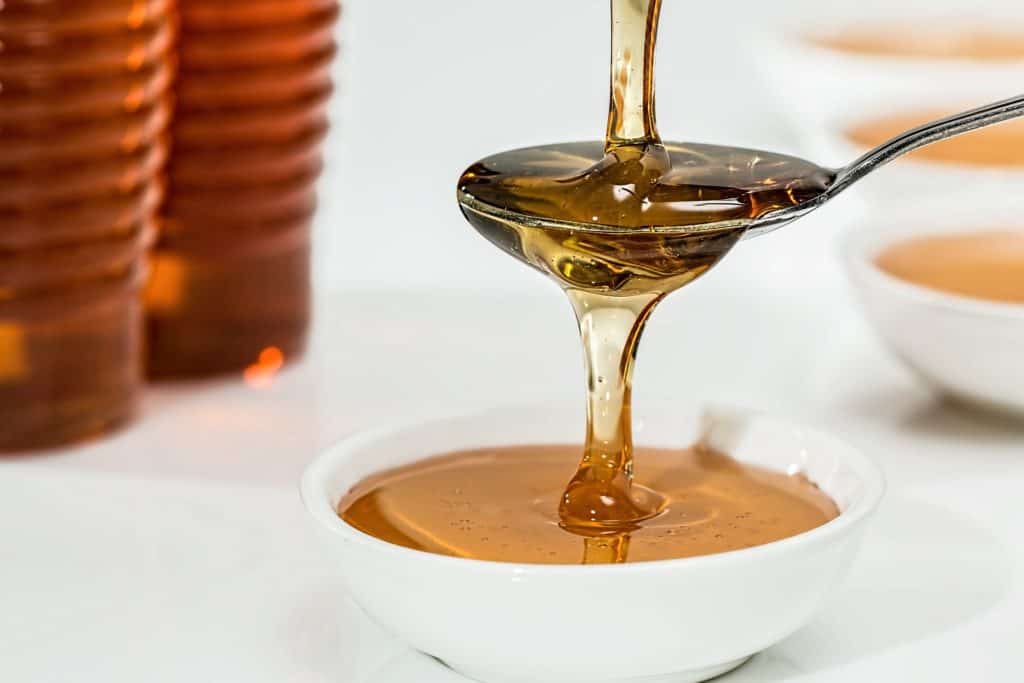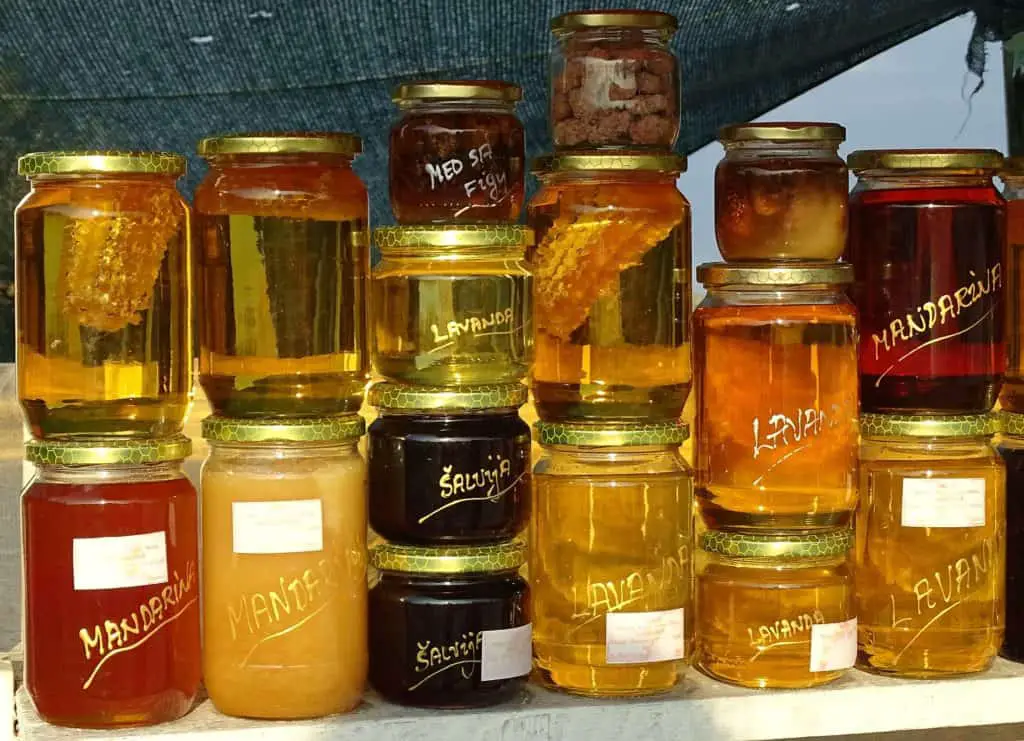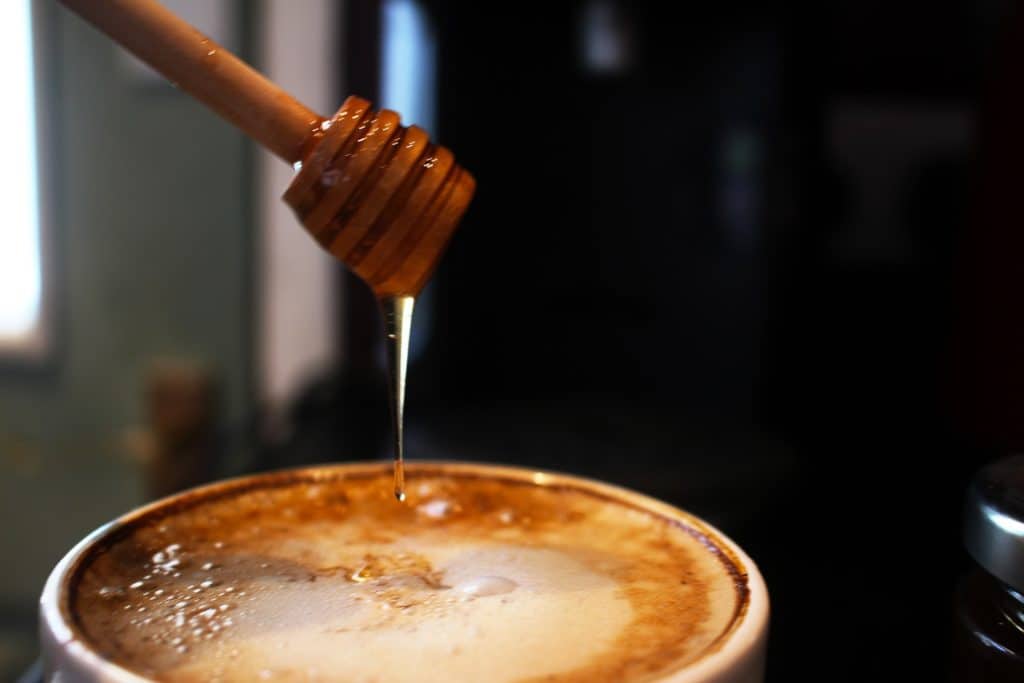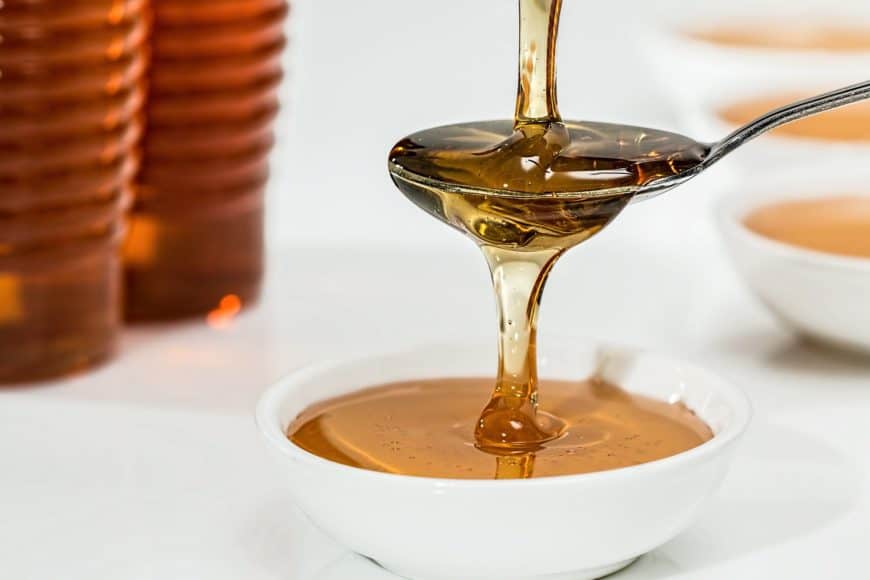
Ever sipped a cup of coffee sweetened with honey and wondered why it feels like a game-changer? Swapping sugar for honey in your daily brew isn’t just a trendy choice—it’s a move backed by science and flavor.
Honey brings a natural sweetness and a host of health benefits that can elevate your coffee experience. In this guide, we’ll explore why adding honey to coffee is worth trying, how it compares to sugar, and how to do it right, complete with a delicious recipe to warm your mornings.
The Sweet Science of Honey in Coffee
For thousands of years, honey has been more than a sweetener. Ancient cultures used it as a medicine, disinfectant, and even a beauty aid. Today, research confirms honey’s nutritional edge, especially when paired with coffee.
Unlike refined sugar, which offers empty calories, honey contains bioactive compounds like polyphenols and flavonoids that deliver health perks. When you stir a spoonful into your coffee, you’re not just enhancing taste—you’re tapping into a synergy that boosts antioxidants and supports wellness.
A Nutrient Boost Over Sugar
Honey isn’t a multivitamin, but it outshines sugar in the nutrition department. Depending on the floral source, honey contains trace amounts of vitamins like C, B6, and riboflavin, plus minerals such as calcium, iron, and zinc. These nutrients, though small in quantity, add a slight edge over sugar’s zero nutritional value. For coffee lovers looking to make healthier choices, honey’s nutrient profile is a subtle but meaningful upgrade.
Packed with Antioxidants
Both coffee and honey are antioxidant powerhouses, and together, they’re a dynamic duo. Honey’s phenolic compounds, like quercetin and kaempferol, neutralize free radicals, reducing the risk of chronic diseases such as cancer, Alzheimer’s, and heart disease. Studies show that adding floral or pine honey to coffee increases phenolic content and antioxidant activity, even after digestion.
Darker honeys, like buckwheat, pack an extra antioxidant punch compared to lighter varieties. Combined with coffee’s chlorogenic acid, honey creates a beverage that fights oxidative stress while tasting great.
Anti-Inflammatory Properties
Chronic inflammation is linked to conditions like diabetes, cardiovascular disease, and arthritis. Honey’s flavonoids and polyphenols have anti-inflammatory effects that can help manage and prevent these issues. Unlike sugar, which can worsen inflammation, honey supports your body’s defenses. Research suggests that honey, especially varieties like Manuka, maintains its anti-inflammatory properties post-digestion, making it a smart addition to your morning brew.
Antimicrobial Benefits for Immunity
Honey’s natural antimicrobial properties, driven by enzymes like glucose oxidase and compounds like methylglyoxal, make it a traditional remedy for infections. It can kill bacteria like E. coli and H. pylori, and even some fungi. In coffee, honey may soothe a sore throat or suppress a lingering cough—studies have shown it outperforms steroids for post-infectious coughs. If you’re feeling under the weather, a honey-sweetened latte could be both comforting and functional.
Easier on Digestion

Got a sensitive stomach? Honey might be your coffee’s new best friend. Bees partially break down honey’s sugars during production, and it contains enzymes that ease digestion. This makes honey gentler on the gut than refined sugar, which requires more processing by your body. Honey also has prebiotic properties, feeding beneficial gut bacteria to reduce bloating and improve digestion. For coffee drinkers prone to acid reflux or discomfort, honey could make your cup more tummy-friendly.
Allergy Relief: Fact or Myth?
You may have heard that local honey can ease seasonal allergies by exposing you to trace pollen, desensitizing your immune system. While some swear by this remedy, scientific evidence is mixed. The pollen in honey is often too minimal to trigger immune adaptation, and digestion may break it down further. Still, honey’s anti-inflammatory properties can reduce allergy symptoms like throat irritation, offering mild relief. If you’re curious, try locally sourced raw honey from a farmer’s market and see if it works for you.
Honey vs. Sugar: A Quick Comparison
How does honey stack up against sugar in your coffee? Here’s a breakdown to help you decide:
| Aspect | Honey | Sugar |
|---|---|---|
| Calories (per tsp) | 21 calories | 16 calories |
| Sweetness | Sweeter, so you use less | Less sweet, may require more |
| Nutrients | Trace vitamins (C, B6), minerals (calcium, iron), antioxidants | None (empty calories) |
| Glycemic Index (GI) | 50–60 (medium, varies by type) | ~80 (high, spikes blood sugar faster) |
| Health Benefits | Antioxidants, anti-inflammatory, antimicrobial, prebiotic | None |
| Digestion | Easier, pre-digested by bees, supports gut health | Harder, requires more breakdown |
| Flavor | Complex, floral notes (varies by type) | Neutral, one-dimensional sweetness |
Honey’s higher calorie count is offset by its sweeter taste, meaning you’ll likely use less. Its lower glycemic index causes a slower blood sugar rise, which is better for sustained energy. However, moderation is key—honey is still sugar and can impact blood glucose, especially for diabetics.
Choosing the Right Honey for Your Coffee
Not all honey is created equal, and the type you choose can transform your coffee’s flavor and benefits. Here’s a guide to popular varieties, each with unique profiles:
- Clover Honey: Mild and clean, perfect for a subtle sweetness that doesn’t overpower your coffee.
- Buckwheat Honey: Dark and spicy with high antioxidants, ideal for bold brews like espresso.
- Manuka Honey: Earthy and aromatic, prized for its potent antimicrobial properties.
- Wildflower Honey: Varies by season, offering a mild, versatile sweetness.
- Orange Blossom Honey: Light and citrusy, a great match for cold brew or light roasts.
For maximum benefits, opt for raw, unfiltered honey, which retains enzymes and nutrients lost in pasteurization. Darker honeys generally have more antioxidants, but choose based on your taste preference. Avoid adding honey to scalding coffee (above 95°F), as heat can degrade its enzymes—let your brew cool slightly first.
A Cozy Honey-Spiced Latte Recipe

Ready to try honey in your coffee? This honey-spiced latte is a warm, aromatic treat that balances sweetness with spice. It’s perfect for chilly mornings or an afternoon pick-me-up.
Ingredients (Serves 2):
- 2 cups freshly brewed coffee (medium roast works well)
- 1 cup milk (whole, skim, or plant-based)
- 2 tbsp raw honey (clover or wildflower recommended)
- 1/2 tsp vanilla extract
- 1/4 tsp ground cinnamon
- Pinch of ground nutmeg
- Optional: Whipped cream for topping
Instructions:
- In a small saucepan, combine coffee, milk, honey, and cinnamon. Add a pinch of nutmeg for warmth.
- Heat over medium, stirring gently to dissolve the honey. Avoid boiling to preserve honey’s nutrients.
- Remove from heat and stir in vanilla extract.
- Pour into two mugs, top with whipped cream if desired, and dust with a sprinkle of cinnamon.
- Sip slowly and enjoy the cozy vibes!
This recipe is endlessly customizable—try almond milk for a nutty twist or a dash of cardamom for extra flair.
Things to Keep in Mind
While honey is a healthier sweetener, it’s not perfect. It has more calories than sugar (21 vs. 16 per teaspoon), so don’t overdo it. Its glycemic index, though lower than sugar’s, still affects blood sugar, so diabetics should consult a doctor. Never give honey to infants under one year due to botulism risk. If you’re watching your weight, consider zero-calorie alternatives like stevia, but honey’s benefits often outweigh sugar’s drawbacks for most people. Lastly, high heat can reduce honey’s nutritional value, so add it to warm, not piping-hot, coffee.
Final Thoughts: Sweeten Your Coffee the Smart Way
Adding honey to your coffee is more than a flavor upgrade—it’s a small step toward a healthier lifestyle. With its antioxidants, anti-inflammatory properties, and digestive benefits, honey transforms your daily brew into a functional drink. Whether you’re soothing a cough, boosting your immunity, or just craving a sweeter cup, honey delivers where sugar falls short.
Experiment with different honey types, try our latte recipe, and discover how this natural sweetener can make your coffee routine both delicious and nutritious. Ready to make the switch? Your taste buds—and your body—will thank you.

